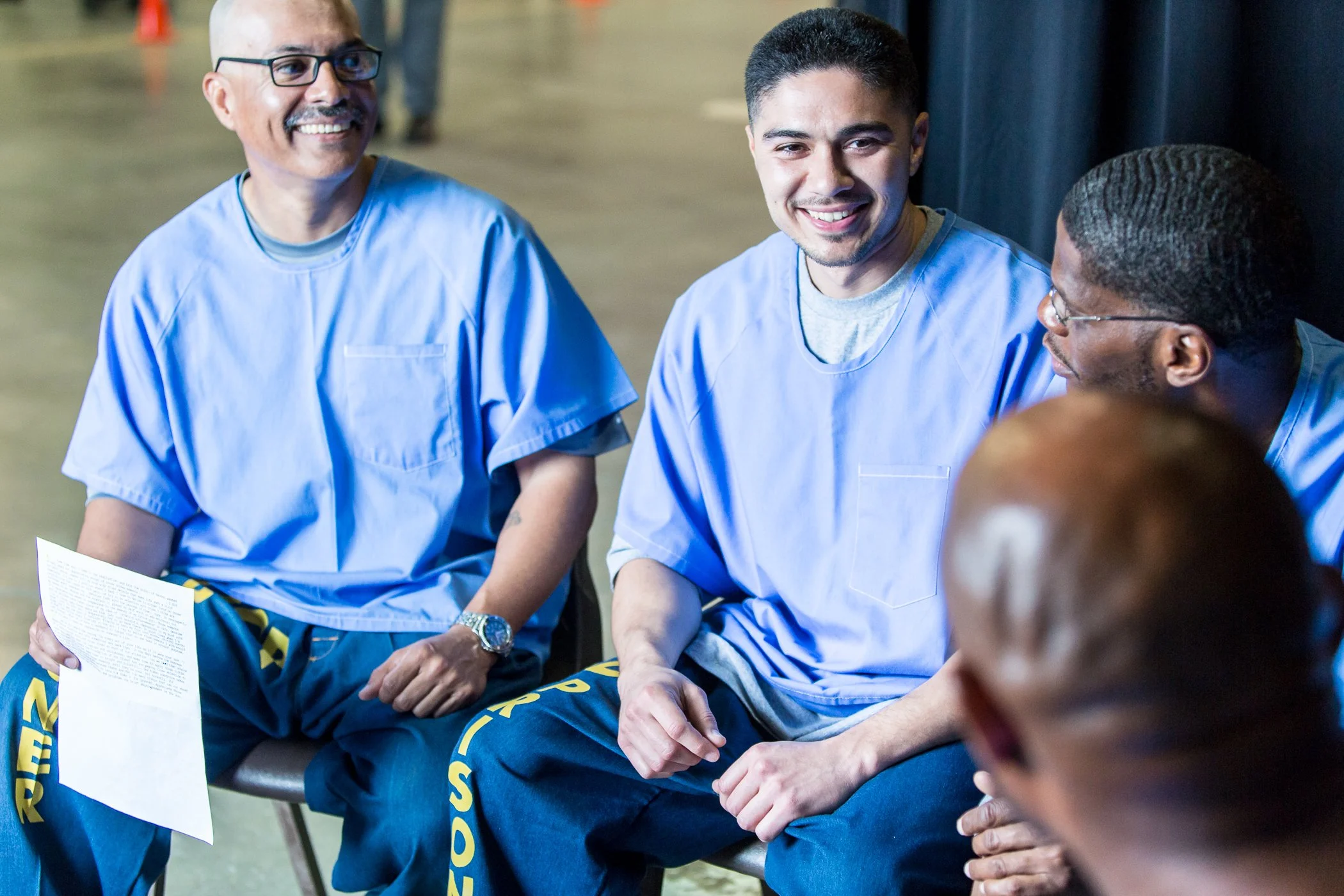The Kardashians came to Donovan a few weeks ago (as in, Kim, Khloé and Kris).
Debriefing about it in our following Tuesday circle, one of the residents shares, “They were so chill and normal. At the end, I was just standing there shooting the sh*t with Kim.”
Having a human-to-human conversation with strangers is likely a rarity for someone like Kim; most conversations are interested, wanting to get something from her, to leverage her influence or her likeness, etc.
So, I imagine that the realness and humanity in that “shooting the sh*t” conversation was quite refreshing for her.
Then, it clicked. The Donovan residents know how refreshing it feels. They ache for people to see past the labels they carry – namely prisoner, felon, murderer, etc. – to the person behind it all. Like the Kardashians, they know how it feels to be labeled, and be seen and valued mainly for that label.
(Recently, a friend told me how she couldn’t tell if a new friend’s interest in her was truly about her or about what she does and has access to. Same...)
We forget that, before they’re celebrities, sports or TV personalities, business moguls, millionaires or billionaires, all these folks are human beings first.
Heck, it’s the same for the rest of us. Think of your last networking event and how quickly you were categorized for what you do without any particular interest to who you are. (And, let’s be honest, how you likely did the exact same thing…)
There’s a pattern here. Behind the labels are humans. And those said humans usually prefer being seen for who they are and related to as human beings.
This is what’s refreshing inside Donovan. In our Tuesday circles, we are stripped of our titles, our accomplishments, our worst mistakes, our bank accounts, etc. While the Donovan residents of course get starstruck too, they quickly move past that façade, peer into the human being behind all the hype and connect with humanness and realness.
Let this be an invitation for you to do just that.
You have a choice: As much as you might appreciate being seen for more than what’s skin deep, it’s likely true for others too. So, take the first step: get curious and ask questions beyond the superficial. A few questions for inspiration: What’s do you like best about [the place you live]? What is making you come alive right now? What do you want to create in the next year? What did you most enjoy about your last vacation?






